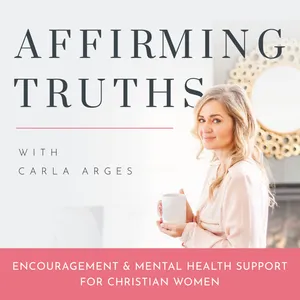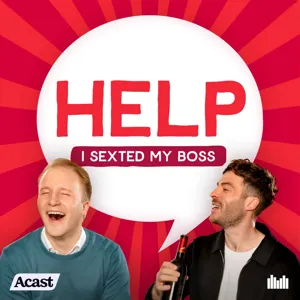Podcast Summary
Balancing Intuition and Critical Thinking: Consider the consequences of trusting intuition versus critical thinking in various situations, and use both tools wisely.
Trusting your intuition can be a complex issue. While it can lead to positive outcomes, such as in the case of a mother's instinct to ensure her baby's safety, it can also hinder progress, like when interrupting sleep training. The speaker, Angela Duckworth, shared her personal experience of going against the advice of sleep trainers and picking up her crying baby, despite knowing it would disrupt the training process. The listener, Rebecca, did the same and ultimately succeeded in getting her baby to sleep through the night. However, they both reflected on the importance of balancing intuition with critical thinking and considering the potential consequences of each decision. This discussion highlights the importance of being aware of when to trust your gut and when to use logic and reason, and how both can be valuable tools in different situations.
Following intuition for personal growth: Trusting your gut instincts can lead to growth, but consider potential risks and seek alternative perspectives.
Trusting your gut instincts can lead to significant personal growth and fulfillment, but it's important to consider the potential risks and costs involved. The speaker shared a personal story about following her intuition to leave her pre-med path and start an education program instead, which led to a successful outcome but initially caused tension with her family. However, she also acknowledged the importance of considering alternative perspectives and sources of information, and shared a story about a time when her intuition led her astray. Ultimately, the speaker emphasized that trusting your gut can be a valuable tool, but it should be used in conjunction with reason and deliberation.
Considering Consequences Before Acting: Balance intuition with rational thinking and be aware of potential consequences to make informed decisions
While gut instinct can be useful in certain situations, it's important to consider the potential consequences before acting on it, especially when there's time to think and assess the situation. The speaker shared a personal story about jumping off a trolley car to retrieve her wallet, which could have ended tragically. She also mentioned an Australian PSA called "Dumb Ways to Die" that warns against dangerous behaviors. The speaker acknowledged that sometimes life requires immediate reactions, but in situations where there's time to think, it's crucial to consider expert advice and potential risks. This discussion highlights the importance of balancing intuition with rational thinking and being aware of the potential consequences of our actions.
The Value of Intuition in Business Decisions: Expertise and experience can make intuition valuable in complex, uncertain business situations. However, it's important to consider both rational and emotional aspects of decision-making and be aware of potential biases.
While calculated decisions are important in business, there's a time and place for trusting your gut instincts. The speaker, Ryan Smith, shared his experience of making a calculated decision to sell a certain amount of shares during the building process of Qualtrics, but then changing his mind at the last minute based on a gut feeling. This decision ended up costing him a significant amount of money. However, Smith also mentioned the research of scientists Danny Kahneman and Gary Klein, who found that intuition can be valuable in situations where there is a high degree of expertise and experience, and where the decision-making environment is complex and uncertain. In other words, there are times when relying on intuition, or your "gut feeling," can be more effective than relying solely on logic and reason. Ultimately, it's important to consider both the rational and emotional aspects of decision-making, and to be aware of the potential biases and limitations of each approach.
Intuition vs Predictability: Intuition can be valuable, but it's important to consider predictability and practice before trusting it. Firefighters and chess masters can rely on intuition in predictable situations, but NFL draft and unpredictable scenarios may require more calculation.
Intuition, or gut feelings, can be valuable and accurate, but it's important to consider the predictability of the situation and the amount of practice one has had in order to trust it. Firefighters, for instance, have a strong intuition developed through experience that can help them make quick decisions in dangerous situations where there are clear signals. However, intuition may not be reliable in unpredictable situations, such as in the NFL draft where factors like injuries and team chemistry can make long-term prospects uncertain. Chess masters also exhibit strong intuition, but it's not always possible for them to explain why they make certain moves. Experts like Gary Klein and Danny Kahneman have debated the role of intuition versus calculation and deliberation, and they concluded that both are necessary, but intuition should only be trusted when the world is predictable and when one has had significant practice in the area.
Developing strong gut intuitions needs practice and experience, especially in familiar situations.: Experience and repetition in familiar situations help build accurate gut intuitions. In unfamiliar contexts, seeking expert advice can be beneficial.
Developing strong and accurate gut intuitions requires experience and repetition, particularly in situations with a known regularity. Firefighters, for instance, have numerous reps in high-stress situations, allowing them to trust their intuition. Similarly, experts in fields like sleep training or gaming have honed their intuition through extensive practice. However, not all situations offer such clear-cut regularity, and it's essential to know when to trust your gut and when to seek external guidance. For instance, in unfamiliar situations with little to no experience, relying on expert advice might be more beneficial. Additionally, emotions can cloud our judgment, making it crucial to separate emotion from intuition. Games like poker and bridge, with their known regularities, provide excellent opportunities to develop strong and accurate gut intuitions. Josh Waitzkin, a renowned expert in various fields, emphasizes the importance of high-rep practice and feedback in mastering any skill.
The Role of Intuition in Decision Making: Intuition is crucial in decision making, but it requires experience and practice to be accurate. Extensive experience or heuristics and biases can influence our gut feelings, leading to correct or incorrect judgments. Always strive for information and experience before making critical decisions.
Developing intuition and trusting our gut instincts can be challenging when we don't have the repetition and feedback to build upon. Using the example of surfing, intuition is crucial, but it comes with experience and practice. In contrast, relying solely on our gut in uncertain situations without sufficient experience can lead to inaccurate judgments. Gary Klein and Daniel Kahneman emphasized that gut feelings can be based on either extensive experience or heuristics and biases, which can lead to either correct or incorrect intuitions. Ultimately, it's essential to recognize that our gut instincts may not always be right, and we should strive to gather as much information and experience as possible before making critical decisions.
Recognize the role of System 1 and System 2 in decision making: In high-pressure situations, allow initial gut reaction but then pause and consider second thought to engage System 2 thinking for better decision making
While our gut reactions and intuition can be valuable, it's essential to be aware of them and not let them override our thoughtful decision-making. Our brains have two systems for processing information: System 1, which is fast, automatic, and intuitive, and System 2, which is slow, deliberate, and conscious. In high-pressure situations, we may rely too heavily on System 1 and neglect the benefits of System 2. To make better decisions, we should allow ourselves to have the initial gut reaction but then take a pause and consider our second thought. This involves consciously recognizing our System 1 thinking and making sure that our System 2 thinking is present and guiding us. As Gary Klein and Daniel Kahneman, experts in this field, suggest, our gut feelings should be seen as signals, not definitive answers. When possible, we should try to engage System 2 thinking to fill in the picture and consider alternative perspectives.
Considering Different Perspectives for Better Decision Making: Engaging in thoughtful dialogue with others and considering different perspectives can help us avoid making hasty decisions and improve our decision-making abilities.
Relying solely on intuition can be limiting, and seeking the perspective of others can help us make better decisions. Intuition, which often comes from pattern recognition, should be considered alongside thoughtful, second thoughts. Gary Klein and Danny Kahneman's adversarial collaboration is an example of this, where they challenged each other's intuitions and gained new insights. Klein later developed a training method called shadow box training, which encourages individuals to analyze the decisions of experts and explain their reasoning. This technique aims to help individuals learn from experts' intuitions without the need for extensive experience. Overall, engaging in thoughtful dialogue with others and considering different perspectives can help us avoid making hasty decisions and improve our decision-making abilities.
The value of trusting our instincts and learning from experiences: Trusting instincts can lead to valuable learning experiences, and developing the ability to switch between System 1 and System 2 thinking enhances personal growth and decision-making skills.
Trusting our instincts, whether right or wrong, can lead to valuable learning experiences. The story of Rebecca and her method of putting her child to sleep illustrates this concept. While her initial approach may not have been effective, she ultimately gained insight into her own instincts and was able to improve her technique. This idea can be applied to various aspects of life, encouraging us to reflect on our decisions and learn from them. Moreover, the discussion touched upon the importance of developing the ability to move from System 1 to System 2 thinking. System 1 thinking refers to relying on our intuition or automatic responses, while System 2 thinking involves conscious and deliberate thought. The shadow box training method, developed by Gary Klein, helps individuals see the world through the eyes of experts and refine their decision-making skills. Lastly, a fact check was provided to clarify some misconceptions and errors in the conversation. For instance, the 2012 Australian rail safety campaign's song actually refers to a 2-week-old, unrefrigerated pie, and the "one handed economist" joke is often attributed to President Harry Truman, although it originated from Walter Heller. In conclusion, the key takeaway is that trusting our instincts and learning from our experiences, as well as developing the ability to switch between System 1 and System 2 thinking, are essential for personal growth and effective decision-making.
Students share their struggles with forgetting learned material: Students in a language class admit to forgetting learned material and having to relearn it for the grade, highlighting the challenges of learning new information and the importance of retention strategies.
Learning new information can be a challenging process, and for some, forgetting what they've learned is a common occurrence. This was shared by students in a language class who admitted to forgetting material they'd learned and then having to relearn it for the grade. Two students even stayed behind to get bonus points for appearing on air. The episode also touched on the importance of trusting one's gut and ignoring it, and invited listeners to share their own experiences by sending a voice memo to NSQ@freakonomics.com. The episode ended with a teaser for the next week's topic: the point of nostalgia. The Freakonomics Radio Network produces various shows, including "No Stupid Questions," which is produced by Rebecca Lee Douglas and Lyric Bowditch, mixed by Jasmine Klinger, and has research help from Daniel Moritz Rabson. The theme song was composed by Luis Guerra. Follow the show on Twitter @NSQ_show and Facebook @nsqshow, and email questions to nsq@freakonomics.com for a future episode. Trust your gut, or ignore it? The choice is yours.





